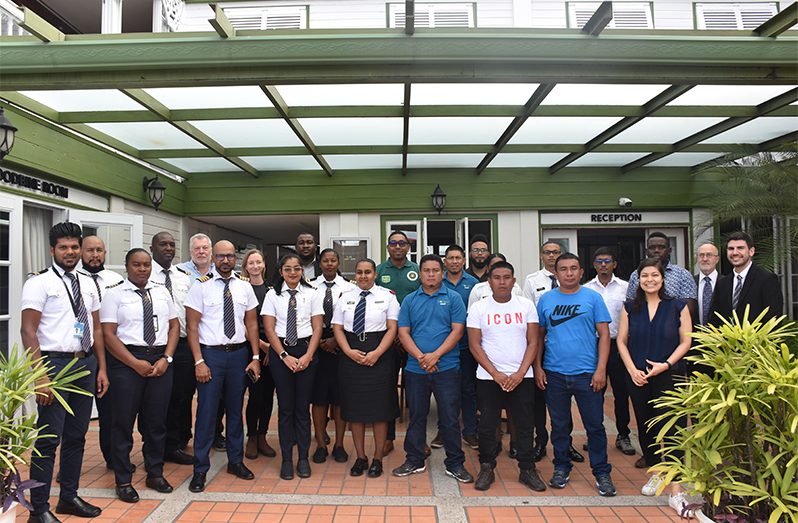THE Guyana Wildlife Conservation and Management Commission has partnered with the International Fund for Animal Welfare (IFAW) to train 23 frontline enforcement officers to acquire new skills on how to handle live animals seized from the illegal wildlife trade.
The training, which started on Monday, will conclude on April 27. Participants include individuals from the Guyana Revenue Authority (GRA), Guyana Livestock Development Authority (GLDA), Iwokrama International Centre, Cheddi Jagan International Airport (CJIA), Ministry of Natural Resources (Corps of Wardens), and Guyana Police Force.
“Enforcement officers are often the ones who come face-to-face with illegally traded wildlife. They want and need to be prepared to handle live wild animals in a safe and humane way, while also collecting the evidence needed for any future proceedings,” Programme Manager for Wildlife Rescue at IFAW, Loïs Lelanchon said.
Noting the negative impacts wildlife trafficking can have on the population of wild species in Guyana, Lemuel Cromwell, Director of Monitoring and Compliance, GWCMC, highlighted that a collaborative approach is necessary to combat the issue of trafficking, and encouraged participants to ensure the skills gained during the training are transferred to their work so that seized animals are handled in a way that would ensure the preservation of their lives.

The trainings are a part of an ongoing project, Confiscated Animals – Rescue & Enforcement Trainings (CARE), led by IFAW and funded by the U.S. Department of State’s Bureau of International Narcotics and Law Enforcement Affairs (INL).
Traffickers targeting Guyana are prone to smuggle bird species, specifically several species of finch. From 2018-2021, at least three wildlife traffickers were stopped by US Customs and Border Control at John F. Kennedy airport in New York.
Each trafficker was in possession of at least 25 finches, all likely destined to be sold and compete in local songbird competitions. Additionally, in 2022, three individuals were convicted and charged locally for the attempted smuggling of songbirds to New York and Barbados.
During the training sessions, attendees will learn to use confiscation kits designed by IFAW and partners to reduce biosafety risks, safeguard animal welfare and preserve evidence integrity. The confiscation kits are designed to protect both animals and people. Each kit includes personal protective gear, animal first aid supplies and forensic evidence equipment.
“For most trafficked animals, enforcement officers are their last hope to be rescued and possibly released back to the wild—which is our ultimate goal,” Lelanchon said.



.jpg)








